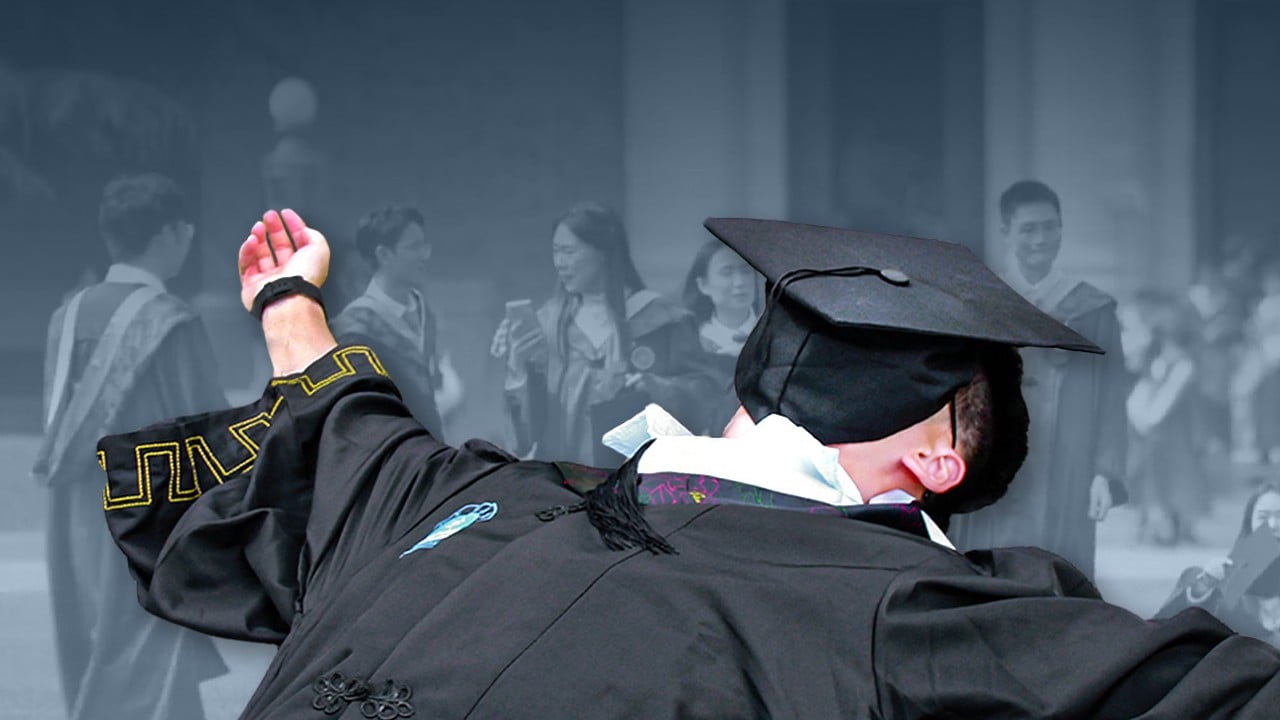
80% of Hong Kong secondary students unsure about life path, with some opting to ‘lie flat’
- Researchers at Hong Kong Shue Yan University stress importance of life direction as some students consider shunning careers to focus on basic needs
- ‘We need to help youths establish their life goals and direction, so they know what they need to do to achieve their targets and be motivated to improve themselves,’ academic says
Academics at the Hong Kong Shue Yan University’s sociology department said on Monday that those without a sense of self-identity were more likely to lead disorganised and unmotivated lives, or what the researchers called lying flat.
The phrase refers to a phenomenon that has swept China in recent years as some young people reject a career-oriented lifestyle in favour of focusing on their basic needs.
The team’s study also found that among the 20.8 per cent of secondary pupils who had direction in life, three-quarters had discovered it through their parents or teachers.
The survey involved more than 1,100 students aged from 15 to 24 interviewed between November 2020 and May 2022, including 543 secondary school pupils, as part of research efforts to gauge young people’s self-identity and commitment to life goals.
According to the paper, a quarter of the 79.2 per cent of secondary pupils who expressed uncertainty about their goals said they were not actively exploring a life direction.
The group also accounted for a fifth of all secondary school respondents.
Professor Cheung Yuet-wah, the head of the university’s sociology department and the paper’s lead researcher, said self-identity was affected by the way a person viewed themselves, including their education, career, hobbies and role in society.
“We need to help youths establish their life goals and direction, so they know what they need to do to achieve their targets and be motivated to improve themselves, resulting in them leading life more proactively,” he said.
The study showed that secondary school students with a sense of self-identity generally scored better in areas such as self-esteem, relationships, proactiveness and social skills, when compared with their peers who lacked the trait.
“Those who have self-identity have greater life satisfaction, take more initiative to solve problems, have better relationships with their families and actively participate in social activities,” Cheung said.
“They are also less likely to be addicted to social media and are more proactive in planning for their career.”
Researchers also interviewed 559 tertiary education students for the study, finding that nearly 35 per cent of them had self-identity.
Peaceful rule has led to complacent officials: Xi ahead of ‘lying flat’ campaign
Compared with secondary schools, only 18.1 per cent of those in tertiary education showed what researchers consider to be a lying flat attitude. The remainder of those without life goals said they were in the process of exploring possibilities.
Lead researcher Cheung attributed the difference to young people maturing and becoming open to various possibilities throughout their tertiary education.
They also took part in more social activities, helping them to develop a sense of self-identity, he added.
The academic noted that the proportion of Hong Kong youths who had self-identity matched levels discovered in similar studies performed in the United States and European countries.
How will China turn economic, social fortunes around if youth ‘let it rot’?
But Cheung said more could be done to help young people find a sense of direction at an earlier stage in their lives.
The professor pointed to the case of Japan, where studies showed 40 to 50 per cent of youths had self-identity.
He attributed the trend to the country offering more life-planning resources for young people.
“We hope the government and social services can promote more life-planning activities to strengthen [young people’s] self-identity, increase their self-esteem and make them more proactive in thinking about what they want out of their lives,” he said.


